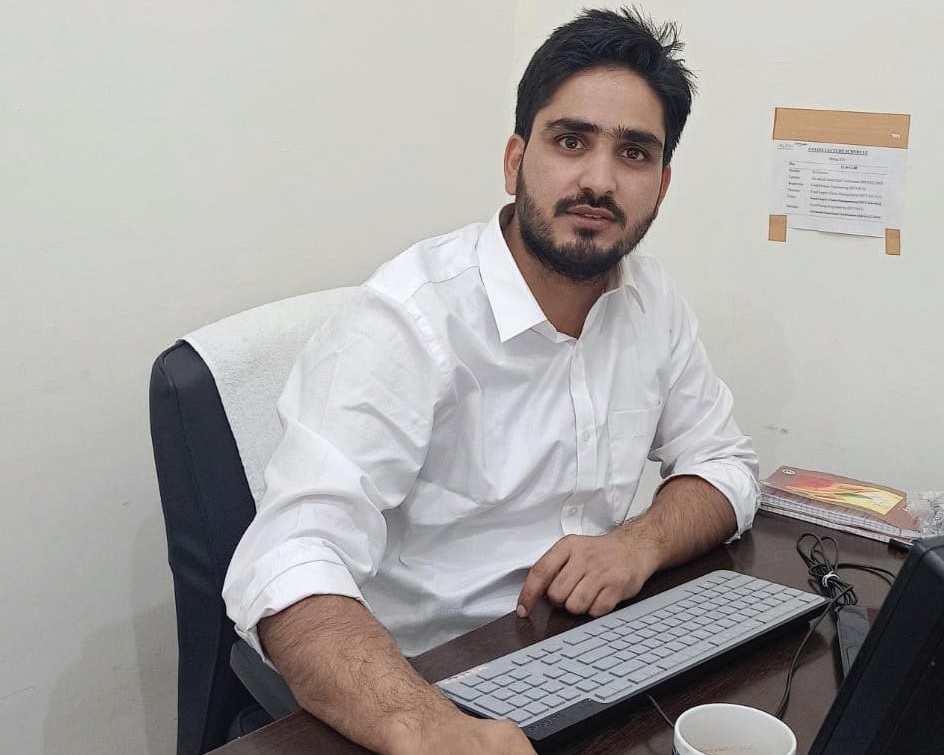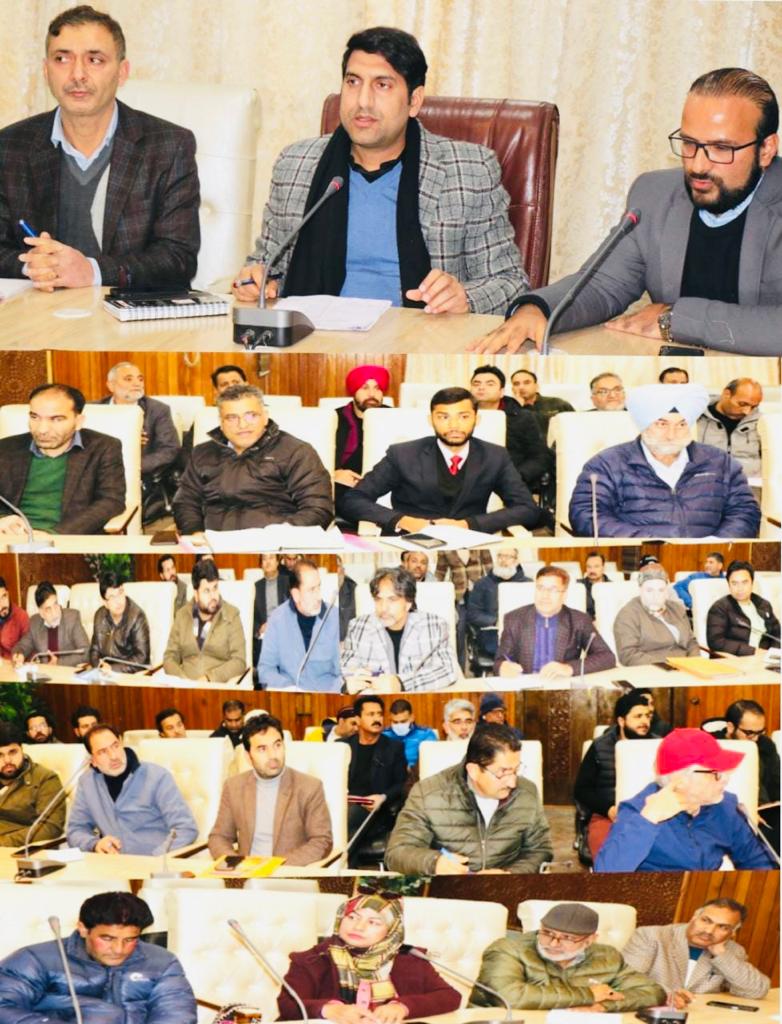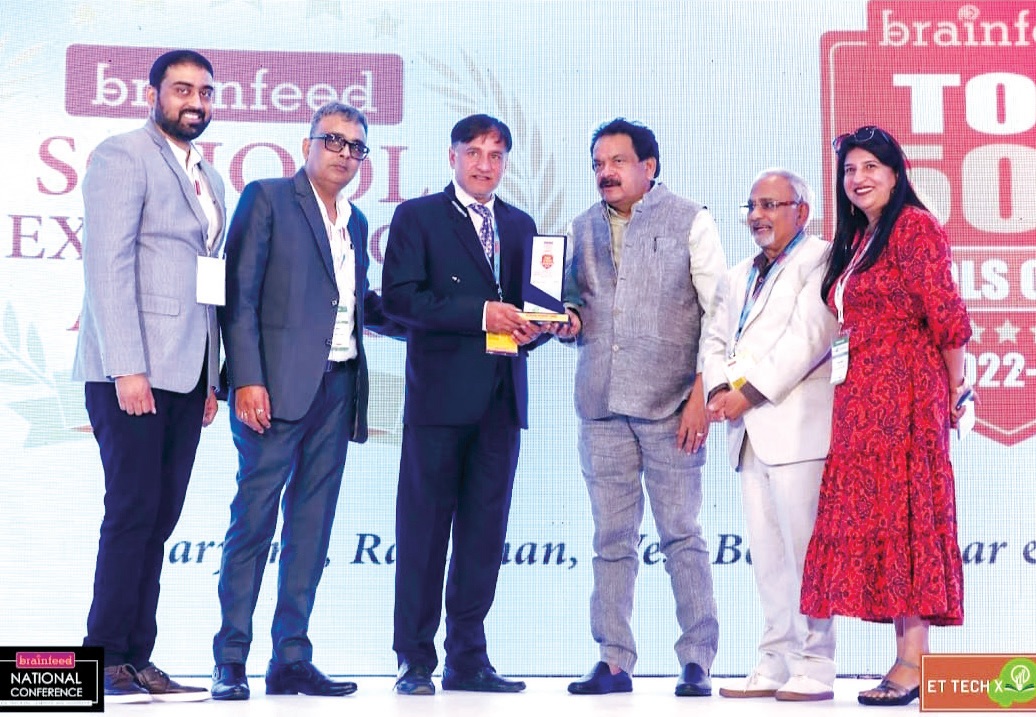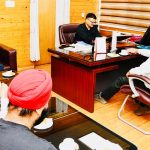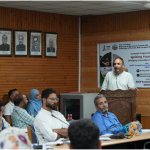Driven by sustainability, Dr. Hilal A Makroo has been researching on the projects related to food processing, valorizing food waste and byproducts to attain the goal of zero hunger and food security.
For his contribution, he has been recently awarded the young scientist and Technologist award from the Department of Science and Technology, Government of India. The award is granted under the theme “Socio-economic Development and Sustainable Development Goals (SDGs)” for his research on “Ohmic heating based novel aseptic and continuous processing of viscous food materials for shelf-life enhancement”.
Hailing from Awantipora, he is currently working as an assistant professor in the Department of Food Technology, Islamic University of Science and Technology (IUST).
“My research proposal was about processing high viscous material using an unconventional and novel approach. Normally when it’s viscous material, we do it by hot water or steam where the thermal energy has to conduct through the material, which makes it slow, complicated and energy deficient. In the proposed research our team will be focused to develop an equipment to heat the viscus food material rapidly by an unconventional method based on Joules law of heating or electro heating. During this process an electric current will be allowed to flow through the material and due to the resistance of the material to the flow of current the temperature will rise rapidly. Using this approach, the controlled heating of the material for desired time-temperature combination will be studied to produce shelf stable and clean labeled food product,” Dr Makroo said.
Currently, the budget for the project is being revised. Apart from making the design of the machine to see the efficiency of the project, the patent will be filed for the machine as well. “We will have the patent as well so that it will be adapted by the industry,” he added.
Most of his research projects are about utilizing food waste. One of the projects supported by the Department of Science and Technology, Jammu and Kashmir is utilization of walnut waste.
He said, “We are trying to use the walnut hull for oral cleaning formulation. In the bygone years, the bark of walnut was used to clean the teeth. The same compound is present in walnut shells so we are working on that and till now, we have gotten good results about that.”
One more ongoing research is supported by the Science and Engineering Research Board (SERB) Department of Science and Technology, Government of India to valorize the unripe immature apples that is wasted in huge quantity mostly during the month of June, he along with his team is working to utilize the such immature apples to recover industrially important components, so that such agricultural waste may be utilized in an improved way.
He said, “Our department works on improving the food quality and safety, food formulations, new product development, recovery and extracting important compounds from underutilized materials and or food byproducts/ waste so that such materials can be utilized in a better way.”
Apart from his own research, he is mentoring research of many students of post graduate, doctorate and post doctorate levels in the department at IUST.
Talking about his work, he said that he and his team works in the circular economy approach, the research is in line with many goals of the UN sustainable development goals 2030 (SDG-2030) related to food waste utilization and zero hunger.
Explaining how waste products can be used for productive means, he said, “Whey protein used to be a waste initially in the cheese industry. The cheese industry was meant to produce cheese and whey was the waste or a byproduct. However, in recent times the scenario has changed and the whey protein has found more value in the market than that of the cheese. Because of the value and demand of whey in the market, many dairy industries have been established to produce whey as the primary product whereas the cheese is a byproduct,” he explained.
Also, he is associated with the in-campus food testing laboratory as a technical manager which is National Accreditation Board for Testing and Calibration Laboratories (NABL), accredited. This is the first food testing lab in any of the institutions/ universities in the Union Territory which has been granted the accreditation.
Talking about the course In Food Technology, he said that people have a lot of misconceptions regarding the course but the opportunities in the field are coming. “Lot of food processing units are established so there is a requirement of technical manpower. Also, the government is getting strict with the food laws so there is a need for food inspectors and quality analysts who will evaluate the food sold in the market to ensure food safety. There are many entrepreneurs who are setting up their own units. The area has scope in public and private domains, outside the country or state, there is also a huge scope,” he said.
In future, the department is planning to upgrade the in-campus lab with an advanced instrumental lab and advanced facility. He said, “At personal level, I want to have a lab where we can produce good scientists and people don’t need to go outside the state for research purposes.”
After pursuing B. Tech and M. Tech in Food Processing, he did his PhD in Food Engineering via split site mode from Tezpur Central University and University of Surrey. He has been a visiting PhD candidate at the Department of Chemical and Process Engineering, University of Surrey in England. His 12 months visit at University of Surrey was supported by Commonwealth scholarship commission in the UK.


